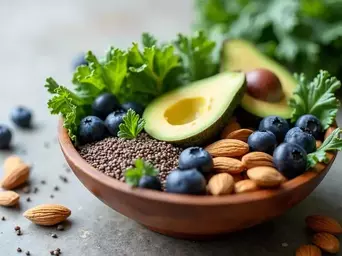Whey Protein
Fast-digesting, ideal for post-workout recovery. Promotes muscle growth and aids in fat loss.
Get expert insights on private label branding and dropshipping for health supplements.
Posted on: 2025-08-08
By: Julian Hart
Are you aware of the variety of protein powders available and how they can transform your nutrition? Learning about the different types can empower you to make informed choices that align with your health goals.
Here’s a quick overview of the most popular types of protein powders, their benefits, and key characteristics.
Fast-digesting, ideal for post-workout recovery. Promotes muscle growth and aids in fat loss.
Made from pea, rice, and hemp, perfect for plant-based diets. Supports nutritional needs without animal products.
Slow-digesting, providing a steady release of amino acids—great for nighttime use.
A complete protein absorbed well by the body, great for muscle recovery.
In the ever-evolving world of health and nutrition, protein powders have become a staple for many. But what exactly are they? Simply put, protein powders are dietary supplements made from various protein sources, designed to help individuals meet their protein needs conveniently. Whether you're an athlete looking to build muscle or someone trying to incorporate more protein into your diet, these powders can play a vital role in your nutritional regimen.
As the founder of Private Label Supplements, I’ve seen firsthand how important it is for emerging brands to offer high-quality protein products. Entrepreneurs often ask me about the different types of protein powders available and their specific uses. Let’s dive deeper into the most popular options, and explore how you can achieve private label supplement success!
Protein powders come in several forms, each with distinct benefits and use cases. Here are the most common types:
Understanding the differences can help you choose the right protein powder that aligns with your health goals. But let’s explore these types more closely!
Whey protein is derived from milk during cheese production, making it a high-quality protein source packed with essential amino acids. It’s well-known for its rapid absorption, which is crucial for muscle recovery after workouts. Many athletes prefer whey due to its effectiveness in promoting muscle growth and aiding in fat loss.
Additionally, whey protein is versatile; it can be blended into smoothies, oatmeal, or even baked goods. Just imagine starting your day with a delicious protein-packed smoothie! It’s not only nutritious but also satisfying.
If you’re looking for a dairy-free alternative, vegan protein powders are a fantastic choice. Made from various plant sources, they cater to those following a vegan or lactose-free lifestyle. Common ingredients include pea, brown rice, and hemp, which can be blended to create a complete amino acid profile.
One of the best parts about vegan protein is its ability to support your nutritional needs without animal products. I’ve had clients share their success stories about feeling more energetic and healthier by switching to plant-based proteins—it's definitely worth considering! You can even create your own DIY vegan shake labels to personalize your products.
Casein protein, like whey, is derived from milk but digests slowly. This slow release of amino acids makes it an excellent option for overnight muscle recovery. Many people enjoy casein mixed with water or milk before bed for a sustained protein supply throughout the night.
Besides casein, there are other protein variants like egg and soy protein that provide unique benefits. They each have their own nutrient profiles, so it's essential to consider your personal dietary preferences when selecting a protein source.
When considering protein options, don’t overlook egg protein, which is highly bioavailable and offers a complete amino acid profile. It's great for muscle recovery and is often used in many protein blends.
Soy protein is another popular choice, especially among vegetarians. It’s rich in essential amino acids and can support heart health. Lastly, pea protein is gaining attention for its hypoallergenic properties and being easy to digest. As a business owner, I always recommend examining the nutritional profiles to find the best fit for your needs and to help you own your sports supplement brand.
When selecting a protein powder, consider your specific dietary needs and preferences. For example, if you're looking for a quick post-workout recovery, whey protein may be your best bet. However, if you're following a vegan diet, opt for plant-based proteins like pea or hemp. Always check the ingredient list for additives or fillers that could detract from your health goals!
A: Protein powders are dietary supplements derived from various protein sources, designed to help individuals meet their daily protein requirements conveniently.
A: The main types include whey protein (fast-digesting), casein protein (slow-digesting), and vegan protein powders (e.g., pea, rice, hemp), as well as egg and soy protein.
A: Whey protein is generally considered ideal for post-workout recovery due to its rapid digestion and assimilation, which helps quickly repair and build muscle tissue.
A: While individual plant proteins (like pea or rice) might not be complete on their own, many vegan protein powders blend different plant sources (e.g., pea and rice) to create a complete amino acid profile.
A: Consider your dietary preferences (vegan, dairy-free), health goals (muscle gain, weight loss, general nutrition), and digestion speed (fast or slow release). Always check the ingredient list for quality and minimal additives.
As we come to the end of our discussion about protein powders, it's essential to take a moment to reflect on what we’ve learned. From understanding the various types of protein powders to evaluating their nutritional benefits, I've aimed to shed light on some critical aspects that can guide your decision-making process. Remember, the right protein powder can support your fitness goals, whether you’re looking to build muscle, lose weight, or simply enhance your daily nutrition!
Here’s a quick summary of the key points we covered:
With a better understanding of protein powders, you can approach your nutritional choices with confidence!
Protein powders offer a range of benefits, but it’s important to consider your personal health goals. Are you after muscle gain, weight loss, or simply a convenient way to boost your protein intake? Understanding your motivation is the first step in selecting the best option for you. It’s also essential to look at ingredient quality and ensure the product aligns with your dietary restrictions, whether that’s avoiding allergens or choosing plant-based options.
Consider these points as you make your choice:
By keeping these factors in mind, you can make a well-informed decision that supports your journey towards better health.
If you're ready to dive into the world of protein powders, here are some actionable steps to find the right product:
Finding the perfect protein powder may take time, but it’s worth the effort! At Private Label Supplements, we support your journey by providing tailored solutions and insights to help you succeed in the health supplement market!
I’d love to hear from you! Have you tried protein powders before? What has your experience been like? Sharing your thoughts not only enriches our community but could help others on their journey to finding the right supplements. Don’t hesitate to reach out through our website or social media channels—let’s keep the conversation going!
Remember, at Private Label Supplements, we're here to empower your brand and support your health aspirations every step of the way!
Here is a quick recap of the important points discussed in the article:

 Did you know that an estimated 70 million Americans suffer from digestive issues? Understanding dige
Did you know that an estimated 70 million Americans suffer from digestive issues? Understanding dige
 What if the secret to a healthier, more vibrant life lies in something as simple as the foods we eat
What if the secret to a healthier, more vibrant life lies in something as simple as the foods we eat
 What if you could fuel your body with over 35 natural ingredients that support your health while tas
What if you could fuel your body with over 35 natural ingredients that support your health while tas